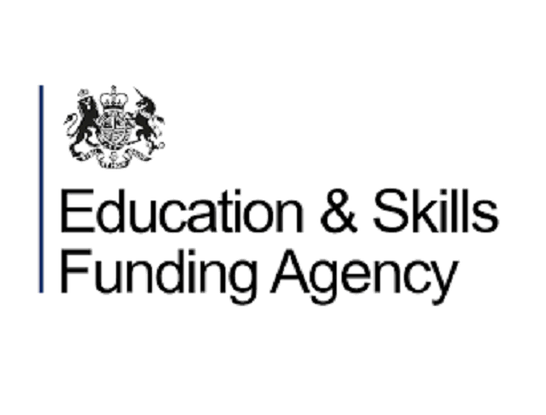How ESFA handles allegations of suspected fraud or financial irregularity

ESFA have published information about how to report instances of suspected fraud or financial irregularity to the Education and Skills Funding Agency (ESFA).
Documents
How ESFA handles allegations of suspected fraud or financial irregularity
HTML
Details
Guide explaining how to make an allegation of fraud or financial irregularity within an ESFA-funded educational providers including:
- academy trusts and schools including free schools and university technical colleges (UTCs)
- further education colleges
- training organisations
1. Introduction
Making allegations of suspected fraud or financial irregularity can be difficult. This guide sets out:
- how to report an allegation about suspected fraud or financial irregularity to ESFA
- the types of allegation ESFA will consider
- how ESFA handles confidential and anonymous allegations
- how ESFA handles reported allegations
- how allegations made by whistleblowers are protected
2. Types of allegation ESFA will consider
ESFA’s role is to confirm:
- if allegations or information from any source indicates financial irregularity
- if an ESFA funded education provider has broken the funding rules
ESFA will consider and determine appropriate action when we receive allegations of suspected fraud and/or financial irregularity, including:
- an academy trust not complying with the Academies Financial Handbook
- a funded provider (eg, academy, college or training provider) has claimed funding from ESFA through deception
- a funded provider has broken the funding rules
- a funded provider has not delivered education/training funded by ESFA
ESFA will not usually consider concerns about:
- the quality of education or leadership, or concerns affecting the organisation as a whole, which are addressed through OFSTED inspections (unless these concerns link to a suspected fraud or financial irregularity). See the schools inspection guide for parents
- discrimination. You can raise complaints about this with Equality Advisory Support Service data protection. You can raise complaints about this with Information Commissioner’s Office
- exam malpractice or maladministration. Any complaints should be raised with Office of Qualifications and Examinations Regulation (Ofqual) or the relevant awarding body
- child protection (safeguarding). Issues should be raised with your local authority designated officer (LADO) and/or the Director of Children’s Services using the report child abuse to local council GOV.UK page
- concerns relating to employment and/or contracts of employment of individual staff should be directed to the individual’s employer
- contractual disputes between employees and employers, and complaints about managers, including bullying and harassment, should be directed to the employer
The above lists are not exhaustive. Where appropriate, ESFA will take action to raise concerns with the appropriate owner.
3. How to report allegations of suspected fraud or financial irregularity
Before raising a concern with ESFA, you must have a reasonable belief that the disclosure is true.
For allegations relating to academy trusts, please use our online enquiry form.
You can also telephone 0370 000 2288 or write to us at:
Counter Fraud and Investigation Team
Education and Skills Funding Agency
Bishopsgate House
Feethams
Darlington
DL1 5QE
For allegations relating to colleges and training organisations, please email ESFA’s Counter Fraud and Investigation Team.
You can also telephone 0370 000 2288 or write to us at:
Counter Fraud and Investigation Team
Education and Skills Funding Agency
Cheylesmore House
Quinton Road
Coventry
CV1 2WT
4. Confidentiality and anonymous allegations
We prefer that you do not raise allegations anonymously. It is difficult to investigate matters where we are unable to contact a whistleblower directly. Unless we consider that there is information or evidence available from other sources, we may not act on anonymous allegations.
If you raise allegations, we will not disclose your identity without your consent, unless this is required for legal reasons. In some circumstances, it may not be possible to act upon your concerns without disclosing your identity. We will always seek your consent before disclosing information to a third party if you have previously requested that your identity is not disclosed.
If you do not provide this consent, we may not be able to investigate your allegations properly, or at all.
5. Action ESFA takes when receiving an allegation
Where you have provided contact details, we will acknowledge your allegation. We may also seek further information from you at this stage.
When we have sufficient information, we will assess your allegation to determine any further actions.
If we can’t handle your allegations, we may refer your allegations to another body.
We cannot commit to notifying you of the outcome of any action we may take.
6. Whistleblowers
ESFA is an executive agency of the Department for Education (DfE). The Secretary of State for Education is responsible for matters about fraud or other wrongdoing in relation to companies registered under the Companies Act 2013. This means that such a disclosure is protected for the purposes of the Employment Rights Act 1996. Disclosures relating to other matters will not be protected for the purposes of the Act.
We may need to share your allegations with other government departments and organisations. They may have an interest or be able to assist us in our consideration of the matters you raise.
Unless there is a statutory obligation to do so, we will not share your personal details without first seeking your consent.











Responses